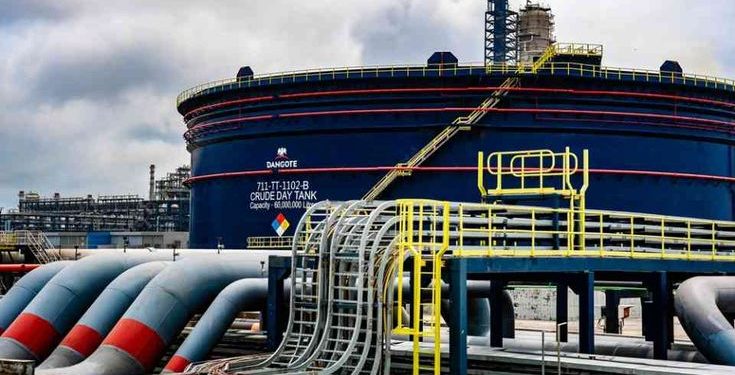Tensions escalated at the Dangote Refinery on Friday as truck drivers under the Nigeria Union of Petroleum and Natural Gas Workers (NUPENG) blocked the main gate of the multi-billion-dollar facility. The dramatic protest took place only days after both parties announced an agreement aimed at resolving labour disputes.
Industry experts fear that the standoff could disrupt Nigeria’s fuel supply chain and raise fresh concerns about the refinery’s ability to operate smoothly.
Background of the Dangote Refinery Labour Dispute
The Dangote Refinery, Africa’s largest single-train refinery, has been described as a game changer for Nigeria’s petroleum sector. However, since its commissioning, it has faced repeated labour tensions.
NUPENG has consistently raised issues about worker welfare, union recognition, and safety standards for truck drivers. After weeks of negotiations, the union and Dangote Group reportedly reached an agreement earlier this week to address some of these grievances.
Despite this, the union accused management of backtracking on parts of the deal, prompting a renewed confrontation.
NUPENG Mobilises Truck Drivers to Block Dangote Refinery
In response to the alleged breach, NUPENG mobilised hundreds of trucks and tankers to blockade the Dangote Refinery entrance. Witnesses reported long lines of stationary vehicles creating heavy gridlock around the Lekki Free Zone. Workers, suppliers, and contractors were unable to access the facility, while nearby businesses also suffered disruption.
“We cannot allow management to toy with workers’ rights. If they continue to ignore the agreement, we will bring even more trucks and shut down operations completely,” a senior NUPENG official declared during the protest.
The union insists the blockade will remain until management shows visible commitment to honouring the deal.
Dangote Group Deploys Towing Vehicles
In a swift counter-response, Dangote management deployed heavy-duty towing vehicles to clear the trucks blocking the refinery’s entrance. This move triggered further anger among union members, who warned that any attempt to forcibly remove vehicles would escalate the crisis.
Sources within Dangote Industries Limited described the blockade as a violation of good faith. “The refinery is a strategic national asset and cannot be held hostage. There are established dispute resolution channels that should be respected,” one insider said.
The company is concerned that prolonged disruption could damage refinery operations and destabilise Nigeria’s already fragile downstream petroleum sector.
Implications for Nigeria’s Fuel Supply
The Dangote Refinery labour crisis has sparked fears of possible fuel shortages in Nigeria. With the facility expected to reduce the nation’s dependence on imported refined products, any disruption raises concerns for both domestic consumption and regional exports.
Energy analysts warn that continued protests could:
- Delay product distribution from the refinery
- Increase fuel scarcity in Lagos and other parts of Nigeria
- Undermine investor confidence in the petroleum sector
Government Moves to Mediate the Crisis
The Ministry of Labour and Employment is reportedly intervening to mediate between NUPENG and the Dangote Group. Government officials fear that the unrest, if left unresolved, could spread across the petroleum sector and trigger wider industrial action.
As at press time, negotiations were ongoing. NUPENG has vowed to sustain its protest until management demonstrates concrete action, while Dangote insists on maintaining operational stability.























































